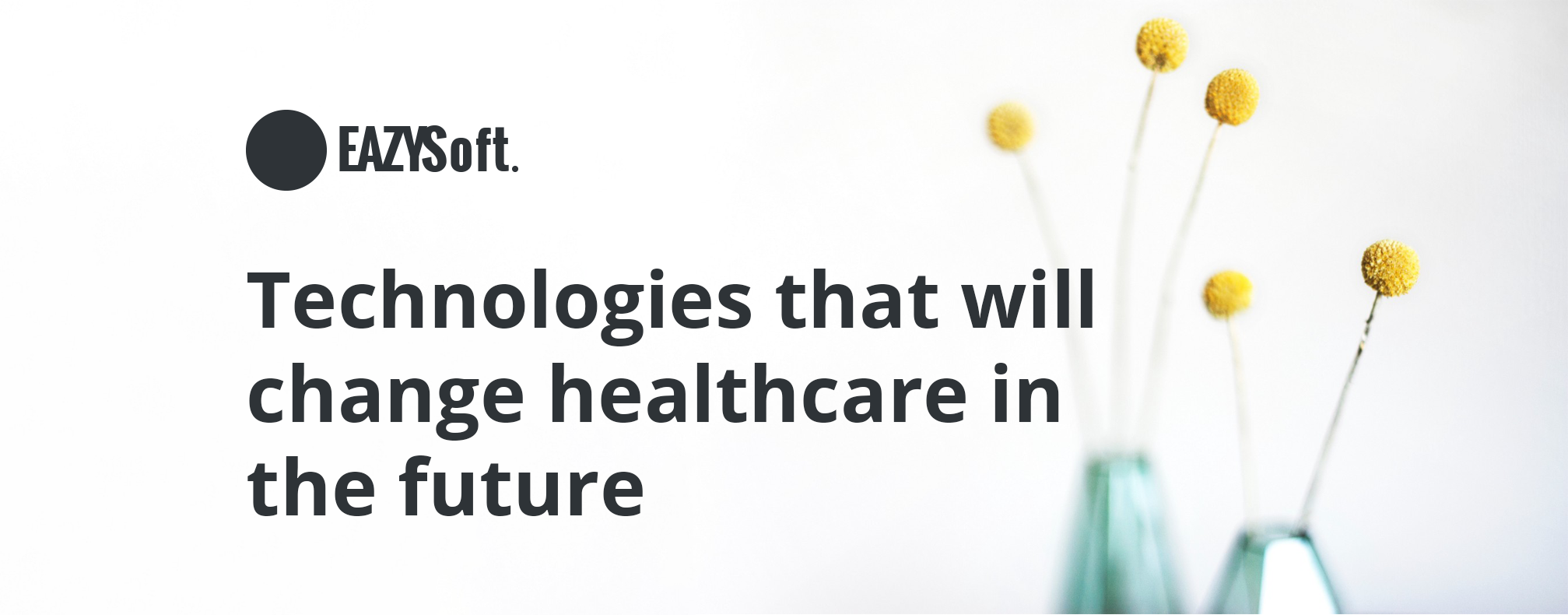
Technologies, that will change healthcare in the future
Thanks to changing healthcare regulations, shifting payment models, and a proliferation of mobile and web applications connecting caregivers and patients, health care has become a hotbed for innovation. In particular, the use of mobile apps in health care has skyrocketed.
A great number of people in the modern world are carrying smartphones or other mobile devices. Mobile apps are but products that engage users and offer them various uses according to their specific needs. Mobile technology is at its peak. We are just about to view a tremendous transformation in health care sector caused by mobile apps. Health care apps have come to serve individuals and health care facilities in unprecedented ways.
Yet mobile technology’s nascent adoption in the healthcare space has provided only hints of its power to improve quality of care, and its true business value is far from realized. Inevitably, mobile and web applications will change the industry, in ways many have imagined and no one could have predicted.
How Do Mobile Apps Transform Health Care?
Improved Physician-Patient Engagement
Several aspects of health care such as long queues and complex procedures were discouraging patient engagement in their health care. Modern mobile apps help remove such complexities and frustrations to patients. Health care apps offer solutions that save money and time considerably.
Improved Access to Care
In a digital age, the requirement for patients and doctors to be in the same location is eliminated. Patients suffering from chronic diseases who live in rural areas or otherwise have limited access to doctors will be able to “visit” with primary care physicians or specialists located in the next major city or a half a world away. Increasingly, the patient will be in his or her home. Instead of having the government or insurance companies dictate that a visit must be in person, which may be either unnecessary or dangerous (for frail elderly patients), patients and physicians will decide together when a visit is best done live and when healthcare services can be delivered virtually.
Reduced Medicare Fraud
One simple reason is that digital apps have an amazing ability to track people and transactions in space and time. In the future, digital apps will allow Medicare to correlate claims data with location, and time data from the digital health apps to look for fraud. Imagine visiting a pharmacy – one of the most common locations for Medicare fraud – scanning in your Medicare card and conducting your purchase digitally. An app would allow Medicare to instantly trace that transaction. Hotspots of activity could be identified and investigated in real-time rather than months after the money is in the criminal’s offshore bank account.
Patient Safety Can be Increased
Healthcare App Developers, through their reliable and efficient health care apps, provide patients with a tool for managing their own health care. The app takes care of several useful things such as reminding about pills, monitoring side effects, and transferring the data to providers. This increases patient safety.
Remote Post-op Care
Mobile apps are drastically improving the quality and consistency of treatment – and thus the chances of positive outcomes – during post-surgical care. In fact, with heart failure as the leading cause of 30-day readmissions, and readmission penalties representing a potentially significant financial burden for many hospitals, “medical concierge” apps make a significant difference. These apps can help ensure patients follow through with their prescribed recovery plans. Doctors and nurses can gather data on everything from heart rate patterns to weight fluctuations and intervene if patients revert to the lifestyle and nutrition habits that led to their conditions.
Given the financial incentive for hospitals, post-visit care will expand dramatically through modern mobile and web applications and will further transform health care in the coming years.
So regardless of your stance on mobile devices, it’s hard to ignore the world of opportunities these devices open up for forward-thinking healthcare organizations. The wealth of contextual data they provide, along with their powerful cross-system integrations and remote access to patients, providers and operators alike, have given a glimpse into the brave new world of health care, which soon may look nothing like the old.In the future, everything that can be done digitally will be done digitally. Digital health apps will schedule appointments, tell you the doctor is running late, help monitor medications’ side effects, and help you follow your care plan accurately. These changes will engage patients with their health and healthcare in new ways. It will also radically reform healthcare delivery.
